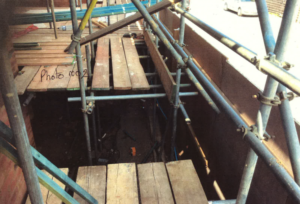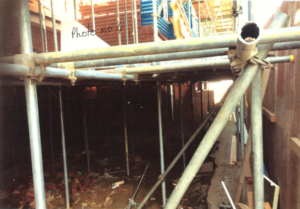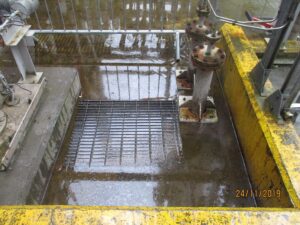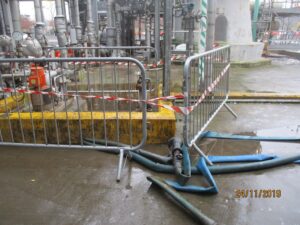Construction firm fined after worker dies from fall
A construction company in Kent has been fined after a sub-contractor fell and died from his injuries.
Mark Tolley, 51, fell nearly two metres through an opening in a scaffold on 5 July 2017 while working on the construction of six houses on Smarden Road in Kent.
He sustained several broken ribs and serious internal injuries including a punctured lung. He later died on 13 July 2017.
Mr Tolley had been installing vertical hanging tiles on one of the new properties when he fell 1.8 metres through an unguarded opening in the scaffold and landed on the ground below.

An investigation by the Health and Safety Executive (HSE) found Amberley Homes (Kent) Ltd, the principal contractor for the project, had not appointed a person with the necessary skills, knowledge, experience and training to manage the construction site. The company had not ensured that a safe working platform on the scaffold was maintained throughout the different phases of the project. Access to and from the first lift working platform was unsafe as multiple openings had been made which could subsist for several weeks. The openings were unguarded and therefore there was a significant risk of falling circa 1.8 metres from the working platform.
Amberley Homes (Kent) Ltd did not control the site effectively. Its monitoring was ineffective as it did not act on concerns raised by its safety consultant when he drew the problems with site management.

HSE guidance states principal contractors must plan, manage, monitor and coordinate health and safety in the construction phase of a project. More on this can be found at: Construction (Design and Management) Regulations 2015 (hse.gov.uk)
Amberley Homes (Kent) Ltd, of London Road, Sevenoaks, Kent, entered a guilty plea to breaching Regulation 13(1) of the Construction (Design and Management) Regulations 2015 during a trial at Maidstone Nightingale Court in January 2024. The company was fined £25,000 and ordered to pay £83,842.34 in costs at Canterbury Crown Court on 15 March 2024.
HSE principal inspector Ross Carter said: “This tragic death could have been so easily avoided by implementing suitable site management to ensure that the scaffold was appropriately adapted by competent persons for the needs of the different sub-contractors.
“This case highlights that principal contractors should be aware that HSE will not hesitate to take appropriate enforcement action against those who fall below the required standards and do not plan, manage and monitor the construction phase effectively.”
Notes to Editors:
- The Health and Safety Executive (HSE) is Britain’s national regulator for workplace health and safety. We prevent work-related death, injury and ill health through regulatory actions that range from influencing behaviours across whole industry sectors through to targeted interventions on individual businesses. These activities are supported by globally recognised scientific expertise. hse.gov.uk
- More about the legislation referred to in this case can be found at: legislation.gov.uk/
- HSE news releases are available at http://press.hse.gov.uk




